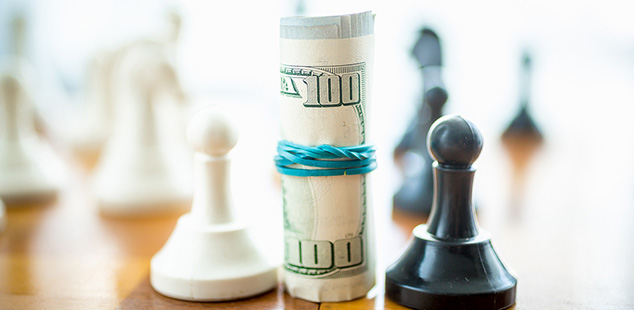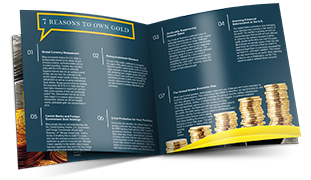
Nations can use their currency as a weapon. A lower value means more foreign interest, but also risks retaliation. Are we currently locked in a global currency war?
How much money do you have in your wallet? That nice picture of Andrew Jackson or perhaps even Ben Franklin holds value due to the United States’ banking policies, which set a certain interest and inflation rate on the dollar. You may have heard that the Federal Reserve raised interest rates during the fall in order to jump-start the process of growth, a policy that (in theory) rewards banks for lending cash rather than holding it in their vaults.
Other nations, most notably Japan, have been extremely hesitant to raise interest rates, which has led to years or even decades of null growth. The move by the Federal Reserve has raised fears that the United States may be engaged in a currency war to push down the value of the dollar, and the rest of the world is playing this dangerous game, too—most notably China but other countries as well. Currency wars represent a geopolitical prisoner’s dilemma, a thorny race to the bottom where there may be no winners in the end.
Devalued Currency Is a Dangerous Game on the World Stage
A currency war refers to the power that a nation holds over their own currency, specifically when a country eases monetary policy with the specific goal of depreciating its currency, in order to cheapen exports and gain advantage in world trade. The Federal Reserve seeks to make the greenback stable and prosperous, but in a world where the dollar is smashing all competition, prosperity can hurt you. As the Eurozone, Canada, Australia, and Japan face the risk of recession while the Chinese economy begins to slow down, the dollar is positively growing on the world scene.
This is good for Americans going on vacation, but bad for Americans trying to compete with foreign entities. When the dollar is strong, other nations choose not to buy our exports while also choosing to sell their own exports to more lucrative markets. The natural response, as such, is to hamstring the dollar by raising interest and inflation rates so that value goes down and trade remains stable. This practice, however, results in currency wars, as nations around the globe devalue their own Euros, yen, rubles, pesos, or pounds just to keep pace. It’s an economic phenomenon known as “beggar thy neighbor,”1 borrowing from Shakespeare, as it creates short-term gains at the expense of other nations, while creating long-term problems.
When Did the Currency War Term First Appear?
The first usage of the term “currency war” was during the 1930s when governments across the world began to de-link their currency to the gold standard. During the height of the Depression, not many currencies could keep pace with the price of gold. By de-linking money to gold, the United States superficially improved the economy by exporting unemployment: with a devalued dollar, other nations were willing to bring jobs to the United States to pay lower costs and wages. This policy proved disastrous for all nations involved, including the U.S., as nations raced to the bottom and effectively neutered international trade.
Economists worry that much the same is currently happening in China with the devaluation of the yuan. It’s no secret that millions of American jobs have moved to China in the past two decades due to the far lower costs of setting up and running businesses and manufacturing. This alone creates a trade imbalance, but the depreciation of the yuan makes it even cheaper to perform business in China. The absolute collapse of the Chinese stock market over just the past six months has proven to be one of the great currency shortfalls in history. It’s not entirely clear to what degree the Chinese government is directing a currency devaluation or to what degree the market itself is correcting a puffed-up yuan. In either event, however, it’s looking increasingly difficult for the dollar to compete with the yuan on even footing. Why buy $10 of goods from the United States, after all, when that $10 would get you several times the value from Chinese vendors?
How Currency Wars Affect Your Wealth
If Chinese currency seems very far away, it’s important to understand that decisions made on the other side of the world will affect your pocketbook in today’s global economy. Scottsdale Bullion and Coin can help anyone, whether a hardened investor or an economic novice, make sense of how to safeguard their wealth during a currency war. Contact us to get information on how currency wars affect your bottom line, with expert advice on investing in precious metals as a safeguard against currency fluctuations and devaluations. No matter what happens to the dollar or the yuan—or any other currency—the value of gold will always remain robust.
Additional Sources:
1 – http://www.investopedia.com/articles/forex/042015/what-currency-war-how-does-it-work.asp

